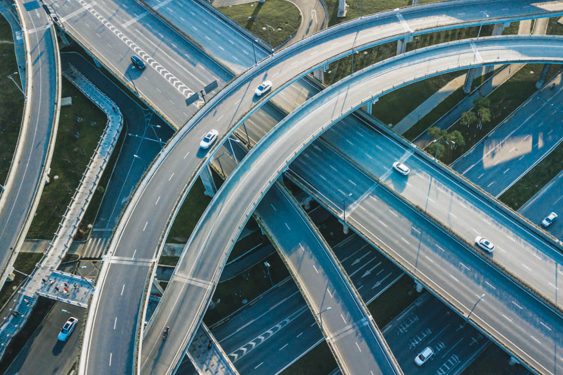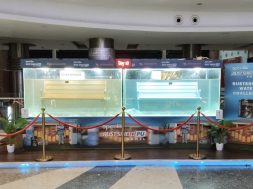Bridging the nation for inter-state connectivity

India’s infrastructural renaissance is a classic proof of diplomatic foresight, connecting roads and bridges and fostering inter-nation partnerships, economic collaboration, and a shared vision for a more interconnected world.
India is weaving a tale of transformation through a constellation of ambitious infrastructure projects that promise to redefine the nation’s landscape. From soaring skylines to cutting-edge transportation networks, each project is a brushstroke on the canvas of a resurgent India. Let’s dive into the blueprint of change and witness how these upcoming projects are reshaping the very essence of the nation.
Mumbai Coastal Road:
The Mumbai Coastal Road isn’t just asphalt laid by the sea; it’s a testament to the city’s resilience and commitment to combating congestion. By hugging the coastline, this engineering marvel is set to redefine Mumbai’s waterfront, offering smoother traffic and a panoramic view of progress.
Maharashtra Chief Minister Eknath Shinde recently announced that the Mumbai coastal road, spanning from the Princess Street flyover to the Worli end of the Bandra-Worli Sea Link, is expected to be finished by May 2024. Shinde clarified that the increased project cost stemmed from alignment changes to accommodate Worli fishermen’s requests for enhanced boat navigation. He assured that the construction is progressing swiftly and the road will be open by May 31, without specifying the inclusion of toll gates.
Delhi-Mumbai Expressway:
The Delhi-Mumbai Expressway is rapidly reshaping India’s transportation landscape. With ongoing construction and strategic developments, the ambitious project promises reduced travel times, improved connectivity, and a major boost to economic growth. Recent milestones include toll rate adjustments, sustainable highway initiatives, and crucial links connecting key cities and airports. As of January 2024, the expressway is well on its way to completion, marking a significant leap forward in India’s journey towards efficient and sustainable transportation infrastructure.
One key aspect of the project is the strategic allocation of construction contracts. Apco Infratech Pvt. Ltd. and GR Infraprojects have secured significant segments, such as the Faridabad bypass to Jewar Airport (Spur package) and the Dausa-Jaipur section. The extensive development, with 41 out of 52 construction packages already awarded, underscores the scale of this undertaking. A 710-km route is now under construction, promising a seamless and efficient corridor between Delhi and Mumbai.
Integrating Intelligent Transportation Systems (ITS) is a pivotal move by the National Highways Authority of India (NHAI). The deployment of Advanced Traffic Management Systems (ATMS) devices is set to enhance the expressway’s sustainability, efficiency, and overall travel experience. This forward-looking approach aligns with global standards, positioning the Delhi-Mumbai Expressway as a modern and smart infrastructure symbol.
Upon completion, the expressway is poised to cut the distance between Aurangabad and Pune in half, mirroring the success of the initial phase that significantly reduced travel time between Delhi and Jaipur. Plans to connect the Vadodara-Virar section to Samruddhi Mahamarg and the Agra-Gwalior Green Expressway further highlight the comprehensive strategy to ease traffic congestion and enhance regional connectivity.
The expressway is progressing steadily, with the Delhi-Surat segment set to open by March. The government’s vision of completing the entire expressway by December, except for the Jawaharlal Nehru Port Trust (JNPT) connectivity, indicates the determined efforts to fulfil promises of halving travel time between Delhi and Mumbai.

Bharatmala Project:
Bharatmala, the ambitious road and highway project, is stitching together the fabric of India’s connectivity. Beyond the asphalt, it’s about diminishing distances, fostering economic activities in hinterlands, and creating a network that propels India into a fast lane of progress.
The government has extended the deadline for completion of the flagship highway development project Bharatmala Phase-I to 2027-28, six years from the original schedule. The move follows an over 100 percent increase in the estimated cost of the mega project to nearly ₹ 11 trillion and reflects the slowing of implementation and financial constraints.
The first phase of Bharatmala was announced in 2017 and was to be completed by 2022. About 26,418 km of highway stretches – 76 percent of the total length of 34,800 km – have been awarded. However, in the first eight months of this financial year, only 102 km of projects under Bharatmala Phase 1 have been awarded. The pace of award will slow down even further until the revised cost of the project is sanctioned by the Cabinet Committee on Economic Affairs (CCEA) as the Ministry of Finance has barred the highways ministry from creating any fresh liability under the project till then.
After awarding all the identified stretches, the completion of construction has a new deadline of 2027-28. By the end of November, 15,045 km or 42 percent of the project had been completed. The Cabinet Committee had approved the first phase of Bharatmala Pariyojana in 2017, which cost ₹ 5.35 trillion. The sanctioned cost of projects that have been awarded is already touching ₹ 8.5 trillion. The Public Investment Board has appraised the revised cost of Bharatmala Pariyojana Phase-I at ₹10.95 trillion. Actual spending under the project has been ₹ 4.10 trillion till October-end.
According to the ministry, the difference in actual project cost and normative cost under Bharatmala Pariyojana is due to an increase in the cost of raw materials, increased land acquisition cost, construction of high-speed corridors, and increase in Goods and Services Tax rates. Significant changes in the scope of projects and cost estimates and richer project specifications adopted have pushed up the sanctioned cost of projects awarded. This has resulted in sanctioned civil cost being ₹23.89 crore per km as against the CCEA approved cost of ₹13.98 crore per km and sanctioned pre-construction cost being ₹8.28 crore per km as against the CCEA approved cost of ₹1.39 crore per km.
The total length to be covered by the Bharatmala project was 74942 km, of which 35800 km were to be completed in Phase 1 by 2022. As phase one still has a lot of ground to cover, how the government will look at executing the remaining 40,412 km is a matter of debate.
4
Cookie Consent
We use cookies to personalize your experience. By continuing to visit this website you agree to our Terms & Conditions, Privacy Policy and Cookie Policy.










